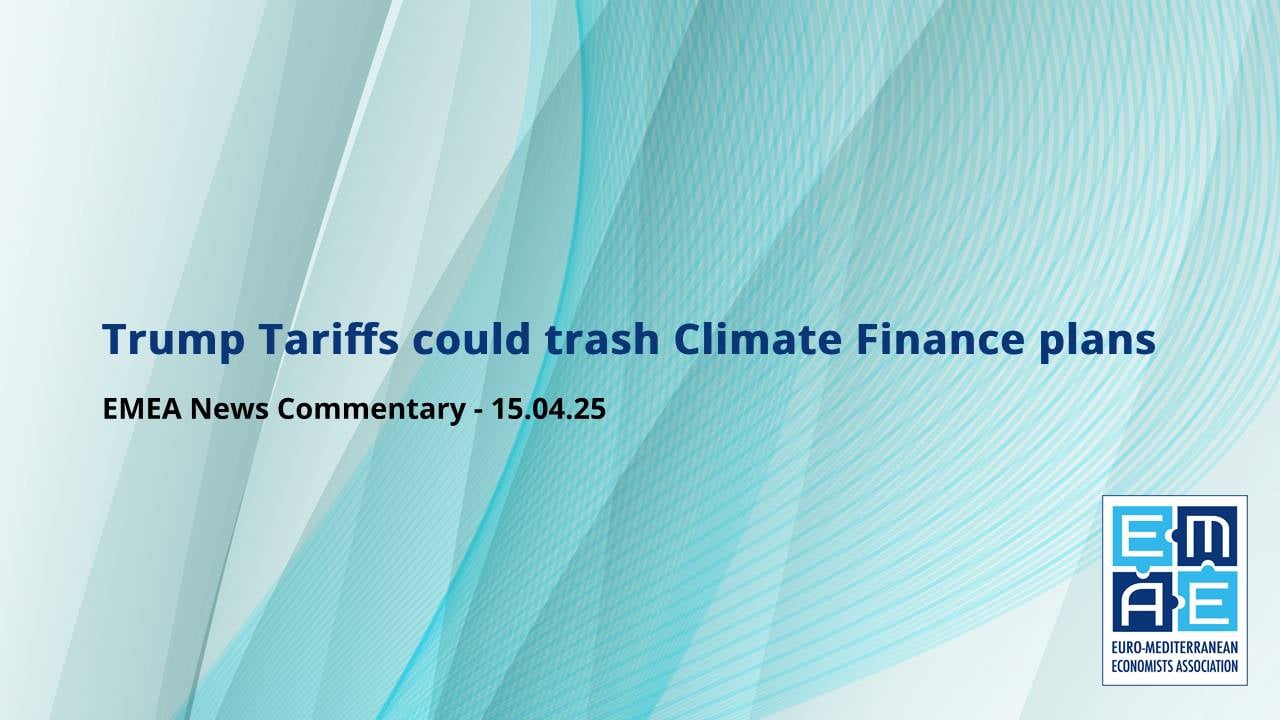The climate crisis won’t be effectively tackled without the transformation of global finance, whilst the loss and damage fund, spawned at the last COP, has been “too little, too late.”
That’s the view of Mariana Mazzucato, University College of London (UCL) professor and author of ‘Mission Economy’, writing in the Financial Times in the days before COP28 gets underway in Dubai.
Mazzucato asserted that “countries in the global south are disproportionately affected by the consequences of climate change.” And she said that praise for the loss and damage fund “has been short lived” – despite the UN hailing it as a breakthrough agreement for countries most affected by rising global temperatures.
Whilst developing countries had accused donor countries of exerting “outsized influence” over the fund – which included charging recipients higher fees for their lending – the deeper issue was that this was all too little, too late.
“It risks replicating the same damaging economic relationships that led us here,” wrote Mazzucato, who is Professor in the Economics of Innovation and Public Value at UCL and founding director of the UCL Institute for Innovation and Public Purpose (IIPP).
“There is plenty of finance out there, but it is time to pay more attention to the quality, not just the quantity,” she observed.
Tackling the climate crisis required “an economy-wide transformation which puts ambitious objectives, like climate targets, at the centre of our economic and fiscal strategy.”
Long-term, patient and mission-orientated finance was needed, from which traditional financiers had historically shied away. It was essential that Governments, particularly the 500 or more public development banks worldwide, stepped into the breach with far-sighted, long-term funding.
National development banks held $20.2tn in assets, with multi-development banks sitting on a further $2.2tn. “It is time to tap into public development finance in ways we have not done before,” she advocated.
Aligning public and private sector finance
She highlighted four key areas where this could be brought into effect.
Firstly, the global debt crisis needed to be confronted head-on. Countries in the global south faced a double jeopardy; being disproportionately affected by the consequences of climate change, brought on largely by the historical emissions of the global north but, at the same time, lacking the funds to respond to the threat. She noted that on average, low-income countries allocated more than twice as much money to servicing their debt as they did to social assistance, and 1.4 times more than to their healthcare systems.
“This predicament underscores the need for a more equitable financial architecture that does not unfairly penalise the global south for problems primarily caused by the wealthier nations,” she said.
Secondly, global south countries faced a massive financing gap and required $4.3 trillion by 2030 if they were to overcome the worst effects of climate change.
Thirdly, it was important to align public and private finance around concrete goals “into shared investment pathways” that could be combined for “a multiplier effect.” Citing the emergence of a new market for CO₂-efficient steel in Germany, she said if it was correctly handled, public investment could create innovative opportunities elsewhere, encouraging private sector involvement and increasing long-term competitiveness.
Fourthly, it was important to “attach progressive conditions to de-financialise the private sector.” According to industry projections, over the next nine years, the 20 largest oil and gas companies were expected to invest $932bn billion in developing new oil and gas fields. But, at the same time, they had raised spending on share buybacks by over 2000 per cent in Q4 of 2021. What was required was “a public-private system, based not on handouts and subsidies but symbiosis.”
Exercising a note of caution, Mazzucato didn’t believe that the COP28 Summit would move the debate forward. More “effective action” was needed if meaningful progress was to be made on climate change mitigation. “It is time to raise our ambition and move from being reactive to proactive, from filling financing gaps to shaping a just, green future,” she concluded.
We won’t tackle the climate crisis unless we transform the financing (ft.com)





